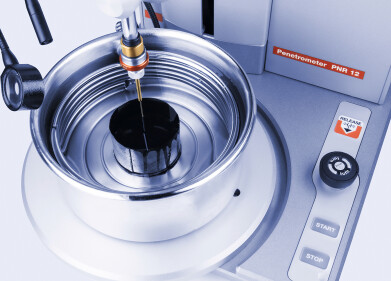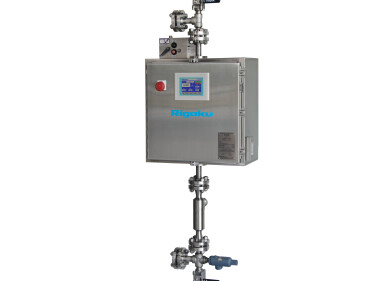Measurement and testing
ABB Supplies Temperature Equipment for the World`s Most Northerly LNG Plant
Aug 20 2008
Built at ABB`s plant in Workington in the UK, the full assembly thermometers feature solid drilled flanged thermowells and transmitters with HART communications and display. The customer required an all HART site to enable enhanced communication with the measuring units for tasks such as range changing.
The thermometers incorporate stainless steel heads, providing an uncoated corrosion-resistant enclosure, with a window for the display.
A special feature of the order also included the supply of 25 metre long probes as part of a system designed to prevent freezing of bedrock under the four main storage tanks at the Melkøya LNG facility. Two of
the tanks are used to store liquefied natural gas, which is cooled with refrigerated gases. The probes will monitor the temperature of the bedrock under the tanks to ensure that its temperature remains above 0°C. This is necessary to prevent the cold temperatures in the tanks
penetrating and fracturing the bedrock, which could in turn compromise the tank foundations.
The equipment also features surface mounted assemblies which are in intimate contact with the pipe outer wall. This saves installation costs as there is no need to penetrate the pipeline to mount the thermometer.
ABB was chosen for its ability to satisfy Statoil`s exacting standards for production and documentation and fully traceable material specifications. “A key part of our oil and gas temperature offering is that we can vouch for the pedigree of every piece of metal used in
the production process,†says Andrew Dunbabin, Temperature Products Manager at ABB`s Workington, UK factory. “We trace the material cast numbers throughout the process, re-marking any metal every time it is cut or machined. Should any unmarked material be found, it is classed as unusable and is discarded. All this means that we can document the processes and cast numbers for every thermowell, giving a history of production processes that each product has gone through. The manufacture of safe, tough and reliable equipment depends on these
stringent quality control processes.â€
The contract also specified total reliability, with the RTDs manufactured to the highest standards using both “standard†stainless steels and high alloy steels such as 6 Mo, selected for its ability to resist corrosion and maintain its strength in very low temperatures.
All assemblies were certified to EEX ia and the scope of materials testing included hydro test, five point calibration and dye penetration testing as well as Positive Material Identification (PMI). The latter is a method of double-checking production processes by actually measuring the elements which make up the metal and their ratio to each other.
Concludes Dunbabin, “In highly demanding safety critical environments, the assurance provided by these tests give operators additional confidence in the equipment supplied.â€
Digital Edition
PIN 25.5 Oct/Nov 2024
November 2024
Analytical Instrumentation - Picturing Viscosity – How Can a Viscometer or a Rheometer Benefit You? - Sustainable Grease Formulations: Evaluating Key Performance Parameters and Testing Method...
View all digital editions
Events
Jan 20 2025 San Diego, CA, USA
Jan 22 2025 Tokyo, Japan
Jan 25 2025 San Diego, CA, USA
SPE Hydraulic Fracturing Technology Conference and Exhibition
Feb 04 2025 The Woodlands, TX, USA
Feb 05 2025 Guangzhou, China



















